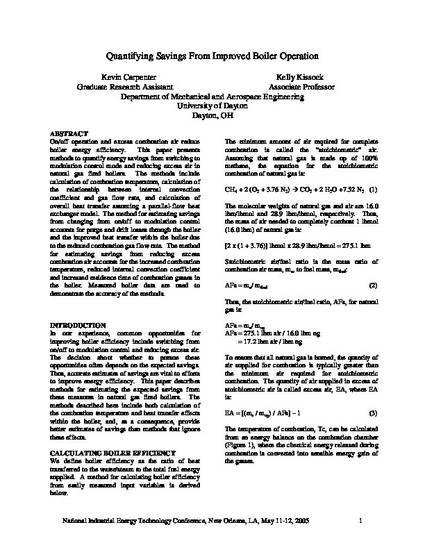
On/off operation and excess combustion air reduce boiler energy efficiency. This paper presents methods to quantify energy savings from switching to modulation control mode and reducing excess air in natural gas fired boilers.
The methods include calculation of combustion temperature, calculation of the relationship between internal convection coefficient and gas flow rate, and calculation of overall heat transfer assuming a parallel-flow heat exchanger model. The method for estimating savings from changing from on/off to modulation control accounts for purge and drift losses through the boiler and the improved heat transfer within the boiler due to the reduced combustion gas flow rate. The method for estimating savings from reducing excess combustion air accounts for the increased combustion temperature, reduced internal convection coefficient and increased residence time of combustion gasses in the boiler. Measured boiler data are used to demonstrate the accuracy of the methods.
Available at: http://works.bepress.com/j-kissock/23/

This document is provided for download by permission of the publisher. Permission documentation is on file.